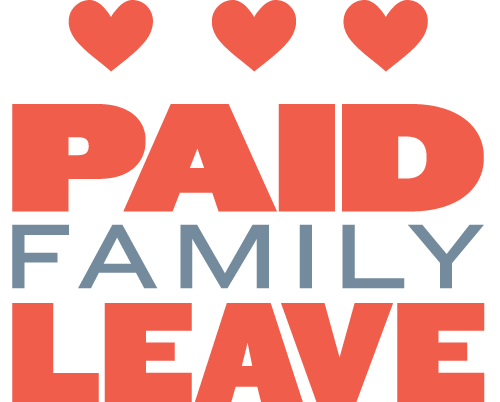Post submitted by Adam Graubart, a Fellow at the Roosevelt Institute at George Washington University
Understanding the benefits of universal paid leave does not require a Master’s Degree in Public Policy or Economics to understand the net benefits of this policy, fortunately considering I am still pursuing my Bachelor’s degree.
As a summer fellow with the Roosevelt Institute, I lobbied several DC councilmembers to vote in favor of a progressive version of the Universal Paid Leave Act of 2015 (UPLA). In addition, I work with Advisory Neighborhood Commission representatives throughout the District to debrief the impact of the UPLA, working towards structuring a resolution that fits the neighborhood’s hope for a paid leave policy that benefits employers, families, and workers. These advocacy efforts work in conjunction with my primary research as a fellow, focusing on the ways in which employers will adjust their business model upon this bill’s passage.
If you find yourself talking to a policy maker, business owner, or anyone in your neighborhood who finds the idea of an employer tax or truly universal paid leave disagreeable, I present the following points in response:
“Why should DC lead on leave? Shouldn’t this be a national priority?”
Democratic nominee Hillary Clinton wrote an article for the Washington Post in which she directly endorses DC’s Universal Paid Leave Act. Her national plan makes serious policy commitments similar to those in the UPLA, including a minimum of 12 weeks s and funding via a tax on wealthier business owners as opposed a tax on employees. Despite President Obama viewing paid leave as a necessity for American workers, Congress and the White House have failed to pass federal legislation. Let’s not forget that every day in Washington, D.C. families experience birth, adoption, illness, injury, trauma, and grief. A strong, solvent, progressive District-level program would serve as a savior for families in all eight wards and a model for other states and potential allies on the Hill. Rather than wait for the feds to act first, experienced policy makers in DC, including Councilmembers Jack Evans, Phil Mendelson, and Mayor Muriel Bowser need to generate genuine momentum for whomever champions paid leave on the national level.
“Another cost for employers? On top of minimum wage hikes? We are sinking the DC economy.”
The primary councilmembers working to advocate for the UPLA view it as an employer - not employee - benefit, and as a coalition, we have incorporated business voices, particularly those of small business owners, throughout the campaign process. In 2004, California passed a universal paid leave bill, and in a survey of California employers, most respondents reported that paid family leave had either a positive effect or no noticeable effect on productivity (89%), profitability/performance (91%), turnover (96%), employee morale (99%).
In fact, not addressing the city's lack of paid leave poses a greater cost to businesses. A compilation of studies by the Center for American Progress shows that the average cost of turnover (recruitment, hiring/interviewing, training, qualification/drug tests, relocation) equates to paying an additional one-fifth of that employee's salary. Turnover costs increase for more specialized, professional jobs. For workers who earn on average $75,000 per year, the turnover costs range from 10% to 30%. However, the studies also reflect decreased turnover at companies with paid leave policies, particularly among females workers between the ages 25 and 45.
“If we pass this bill, companies will locate in Arlington or Maryland where the cost of doing business is cheaper.”
In the last decade, the DC Council advanced several pieces of legislation regulating business in the District and protecting worker benefits, including raising the minimum wage and securing unemployment benefits and overtime pay. When the District increased the minimum wage starting in 2014, it remained the only part of the region to grow in terms of employment, most noticeably in the restaurant and food services industries.
The White House Council of Economic Advisors also notes that in a survey of human resources managers, two-thirds cited family-minded benefits (paid leave, sick days etc.) as the number one factor impacting recruitment and retention of employees. For small professional firms, the ability to provide paid leave for 12 weeks via the District's passage of the UPLA levels the playing field with the District’s largest firms that attract the most-competitive candidates with hefty benefits packages.
Share your story:

